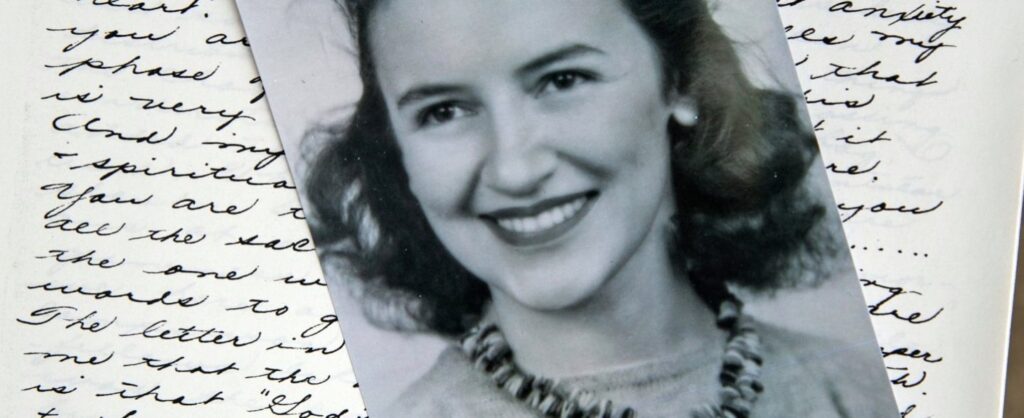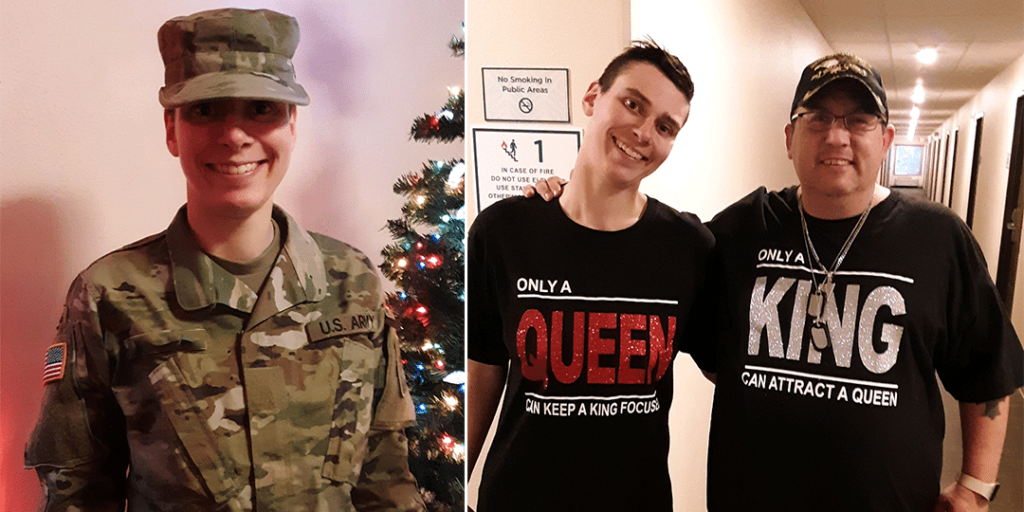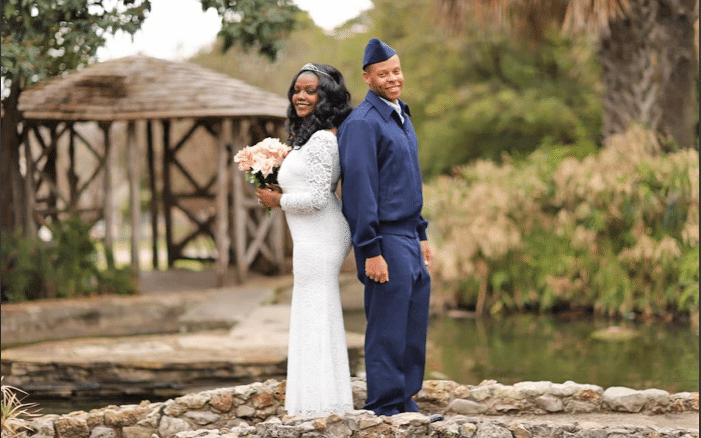
- The App
- Sandboxx News
- Resources
Learn
- Company
About
Become a Partner
Support
- The App
- Sandboxx News
- Resources
Learn
- Company
About
Become a Partner
Support
When I saw Tif Marcelo’s novel, “In A Book Club Far Away,” on Book of the Month’s book selections this past March, I knew I...

When I saw Tif Marcelo’s novel, “In A Book Club Far Away,” on Book of the Month’s book selections this past March, I knew I had to read it. Book of the Month, first of all, is my favorite $14.99 I spend each month. Every month, they choose five new hardcover books (many of which haven’t been released yet elsewhere, and which cost less than their new-release Amazon prices). I have been subscribing for almost a year, and I have yet to be disappointed with any of their selections.
And so when I saw that Tif Marcelo’s novel followed three Army wives—estranged friends—who must overcome their differences when one of them needs help, I immediately purchased the book, read it, and loved it. The experience of the military spouse was so authentic and brought back so many memories from my own military spouse days that I was excited to learn more about Tif.
Tif has an incredible story. Not only is she a veteran U.S. Army nurse and a military spouse, but she also holds a master’s degree in public administration and is the mother to four children. She is the author of “Once Upon a Sunset,” “The Key to Happily Ever After,” and the “Journey to the Heart” series.
Check out Tif’s website, tifmarcelo.com, for more about her and her books. I am so excited to share this conversation with you! (Spoiler alert, I love her last answer!)

RELATED: JEHANNE DUBROW: ACCLAIMED POET AND MILITARY SPOUSE
How did you go from being an Army nurse to becoming a writer?
I’ve wanted to become a writer since I was a young girl! But I was guided by my parents to seek a more practical profession. My journey took me to enlisting in the Army when I was 17, and then through college via ROTC, and then serving on active duty as an Army nurse. All throughout that time, I wrote in journals, and when I left the Army started blogging. While working as a civilian nurse blogging led me back to writing fiction; the joy of the practice returned. Years later, pregnant with my fourth child, I decided to write seriously. About five years after that, I found an agent to represent me, and she sold my first book deal a few months later, in 2016. It was a winding road to get here, but it was all worth it.
Your most recent book, “In a Book Club Far Away,” was one of Book of the Month’s five book selections for March (I chose yours!). What did you do to celebrate?
Thank you so much for choosing “In a Book Club Far Away” for Book of the Month! I was absolutely ecstatic! I am also a subscriber to Book of The Month, so it was such a pleasure to celebrate the book in hardback! Of course, in the reverie, I bought another book! (I am a reader first and foremost, after all.)
Where did the idea for “In a Book Club Far Away” come from? Do you have a favorite book club pick?
“In a Book Club Far Away” has been a book in my head for many, many years. I wanted to write about military spouses because of my personal experience of being a military spouse. And especially, in sometimes more isolated duty stations where we have no one to turn to but our neighbors. I also attended a myriad of books clubs, some affiliated through the post spouse clubs, where I found the best of friends. The intersection of both intrigued me; I wanted to showcase the joy and the struggles of these experiences. If I were to choose a book as a favorite book club pick, it would have to be “Station Eleven.” That brought out the liveliest conversation in one of the book clubs I attended.

RELATED: THE 9 MILITARY NOVELISTS YOU MUST READ NOW
As a wife and mother of four, how do you find time to write? Do you have a daily writing routine?
I’m an early bird! I typically wake at five in the morning to write, when my head is clear, and there’s less chance for me to over-edit my words. I work from 5:00 to about 8:30, and if I find pockets of time during the day, I take it! I am, however, pretty flexible. That is something ingrained in military life: plan for the time, and have emotional room for change. Not all days go as how I think it will go, but I do try my hardest.
What encouragement or advice do you have for service members, spouses, or veterans who dream of publishing a book one day?
I always say that if someone has an inkling to write, that they should do it. There are so many ways to be published, and I believe there is a path for everyone. Our stories are important; our military people are not a monolith, and our experiences could help others, written either as fiction or non-fiction. So, my advice would be “write your story.” The story comes first. Publication is second. Finish the book.




